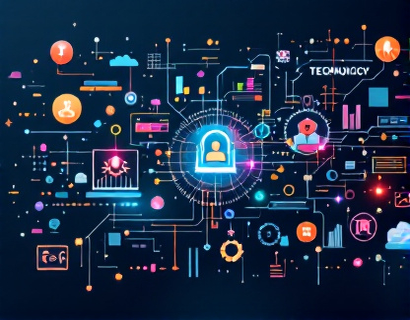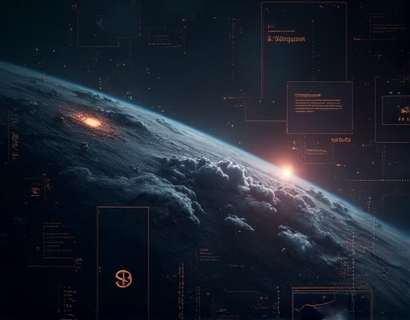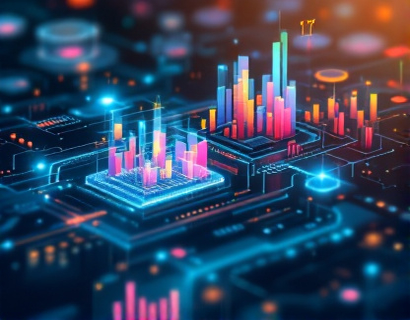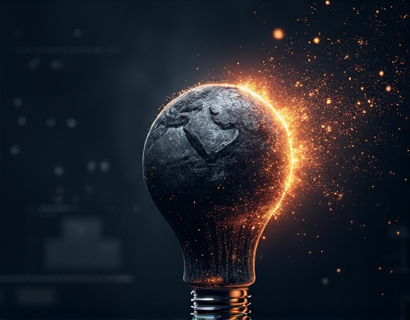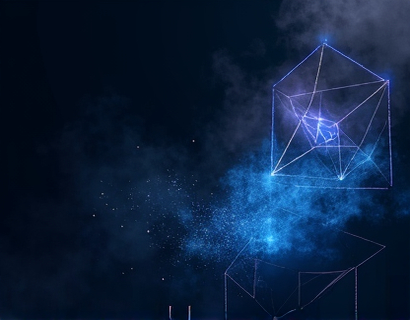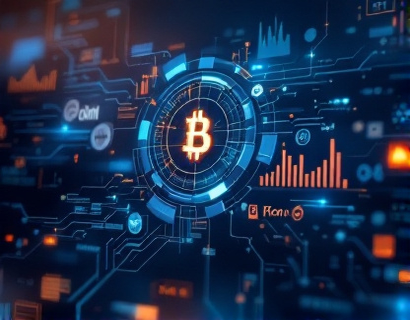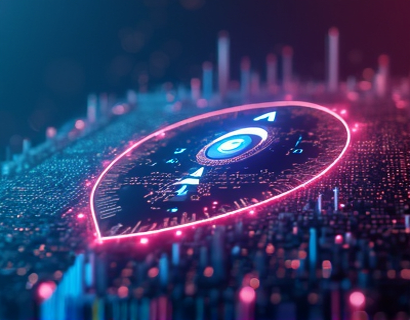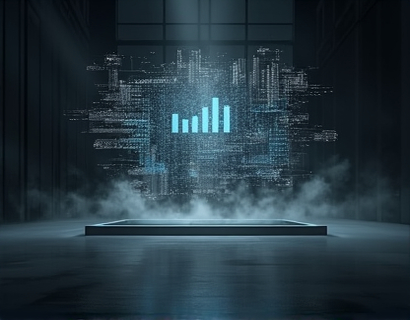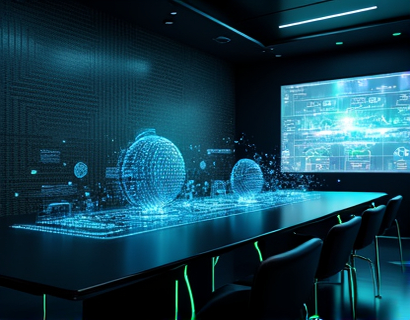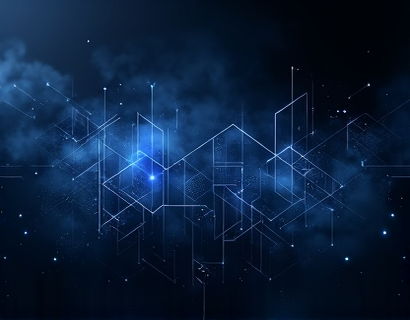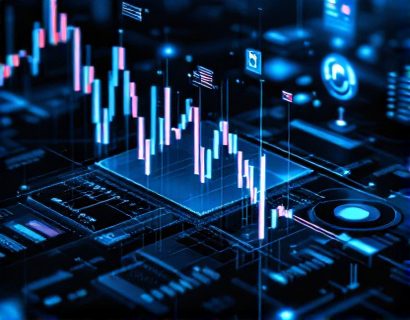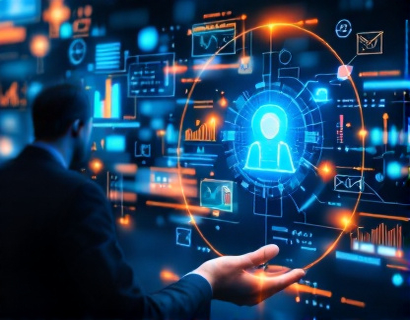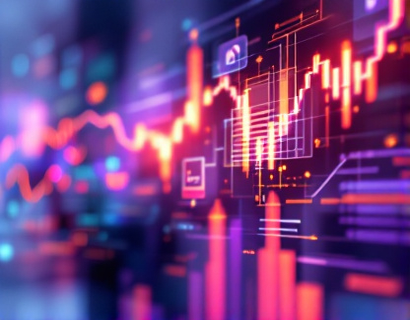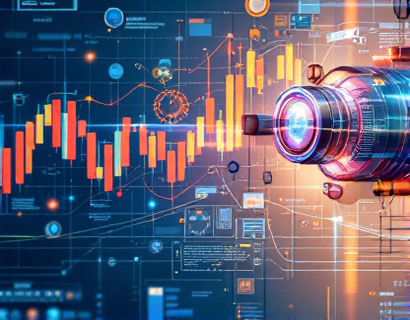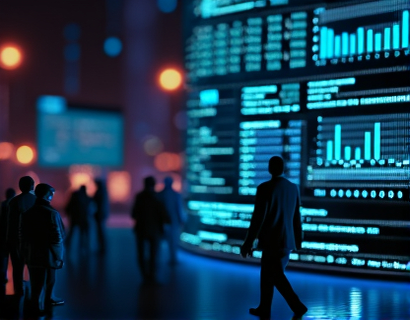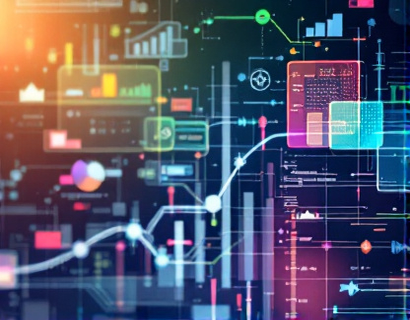Unlocking Digital Transformation: Harnessing AI and Blockchain for Next-Gen App Solutions
The digital revolution is accelerating at an unprecedented pace, driven by the convergence of artificial intelligence (AI) and blockchain technology. These cutting-edge innovations are not just transforming industries but redefining the very fabric of digital interactions. This article delves into the powerful fusion of AI and blockchain, exploring how these technologies are unlocking new possibilities for app solutions that are more seamless, efficient, and secure than ever before. Whether you are a tech enthusiast or an early adopter, understanding the synergy between AI and blockchain can provide valuable insights into the future of digital applications and services.
The integration of AI and blockchain is creating a new paradigm in software development and deployment. AI brings intelligence and automation to digital processes, while blockchain ensures transparency, security, and decentralization. Together, they form a potent combination that can revolutionize how we design, develop, and interact with digital applications. This article will guide you through the key aspects of this technological fusion, highlighting real-world applications and the potential benefits they offer.
Understanding AI and Blockchain
To fully appreciate the impact of AI and blockchain, it's essential to understand each technology individually. Artificial intelligence refers to the simulation of human intelligence in machines that are programmed to think and learn like humans. AI encompasses various subfields, including machine learning, natural language processing, and computer vision. These technologies enable machines to perform tasks that traditionally required human intervention, from simple data analysis to complex decision-making.
Blockchain, on the other hand, is a distributed ledger technology that ensures data integrity and security through a decentralized network. It is best known for its role in cryptocurrencies like Bitcoin, but its applications extend far beyond finance. Blockchain provides a transparent and immutable record of transactions, making it ideal for scenarios where trust and security are paramount.
The combination of AI and blockchain leverages the strengths of both technologies. AI can process and analyze vast amounts of data stored on a blockchain, extracting valuable insights and automating tasks. Meanwhile, blockchain can enhance the reliability and security of AI systems by providing a tamper-proof environment for data storage and sharing. This synergy opens up new possibilities for app development, particularly in areas such as finance, healthcare, supply chain management, and more.
Enhancing Security with Blockchain
One of the most significant advantages of integrating blockchain into app solutions is the enhanced security it provides. Traditional centralized systems are vulnerable to hacking and data breaches, as they rely on a single point of control. In contrast, blockchain's decentralized nature distributes data across multiple nodes, making it extremely difficult for malicious actors to alter or manipulate the information.
For instance, in financial applications, blockchain can ensure that transactions are recorded accurately and cannot be altered once confirmed. This level of security is crucial for building trust among users and stakeholders. Additionally, smart contracts on the blockchain can automate and enforce contractual obligations, reducing the risk of fraud and errors.
AI can further bolster security by detecting and responding to potential threats in real-time. Machine learning algorithms can analyze patterns and identify anomalies that may indicate a security breach. By integrating AI with blockchain, apps can achieve a multi-layered security approach that is both proactive and reactive, ensuring that user data remains protected at all times.
Improving Efficiency with AI
AI's ability to automate and optimize processes can significantly improve the efficiency of digital applications. By automating routine tasks, AI frees up human resources to focus on more complex and value-added activities. This not only increases productivity but also reduces operational costs.
In the context of app development, AI can streamline the development process through automated coding, testing, and deployment. For example, AI-powered tools can generate boilerplate code, identify bugs, and even suggest optimizations, accelerating the development cycle. This allows developers to deliver high-quality applications more quickly and efficiently.
Moreover, AI can enhance user experiences by providing personalized and context-aware services. Machine learning algorithms can analyze user behavior and preferences, enabling apps to offer tailored recommendations and insights. This level of personalization not only improves user satisfaction but also increases engagement and retention.
Real-World Applications
The potential applications of AI and blockchain are vast and varied. Let's explore some real-world examples across different industries to illustrate the transformative impact of this technological fusion.
Finance
In the financial sector, the combination of AI and blockchain is revolutionizing how transactions are processed and managed. Decentralized finance (DeFi) platforms use blockchain to provide financial services without intermediaries, while AI can optimize trading strategies and risk management. Smart contracts powered by AI can execute complex financial agreements automatically, ensuring compliance and reducing the need for manual intervention.
For instance, AI-driven algorithms can analyze market data in real-time, providing insights that can be used to make informed investment decisions. Blockchain ensures that these transactions are secure and transparent, building trust among users. This synergy is particularly beneficial in areas like cross-border payments, where traditional systems are slow and costly.
Healthcare
In healthcare, AI and blockchain can improve patient care, data management, and research. Blockchain can securely store and share patient records, ensuring that healthcare providers have access to accurate and up-to-date information. AI can analyze this data to identify patterns, predict disease outbreaks, and personalize treatment plans.
For example, a blockchain-based platform can enable secure sharing of medical records between hospitals and clinics, facilitating better coordination of care. AI algorithms can process this data to identify high-risk patients and recommend preventive measures. Additionally, clinical trials can benefit from AI's ability to analyze large datasets quickly, accelerating the discovery of new treatments.
Supply Chain Management
Supply chain management is another area where AI and blockchain can drive significant improvements. Blockchain provides a transparent and immutable record of every step in the supply chain, from production to delivery. AI can optimize logistics by predicting demand, managing inventory, and identifying bottlenecks.
Consider a scenario where a company uses blockchain to track the origin and movement of goods, ensuring authenticity and compliance with regulations. AI can analyze this data to optimize routes and reduce transportation costs. Together, these technologies can create a more efficient, transparent, and resilient supply chain, benefiting businesses and consumers alike.
Challenges and Considerations
While the potential of AI and blockchain is immense, there are several challenges and considerations that need to be addressed. One of the primary concerns is the technical complexity involved in integrating these technologies. Developers must have a solid understanding of both AI and blockchain to design and implement effective solutions.
Another challenge is the regulatory landscape. As these technologies are relatively new, regulations are still evolving. Companies must navigate varying legal frameworks to ensure compliance and avoid potential pitfalls. Additionally, there is a need for standardization to facilitate interoperability between different blockchain platforms and AI systems.
Scalability is another critical factor. While blockchain offers security and transparency, it can be slow and resource-intensive, especially when handling large volumes of transactions. AI can help mitigate this by optimizing processes and reducing the computational load. However, ongoing research and development are necessary to address these scalability issues.
Future Outlook
The future of AI and blockchain integration is promising, with ongoing advancements poised to unlock even more possibilities. As technology continues to evolve, we can expect to see more sophisticated applications that combine the strengths of both AI and blockchain.
One area of focus will be the development of more efficient blockchain architectures that can handle higher transaction volumes without compromising security. Advancements in quantum computing may also play a role in enhancing the capabilities of AI and blockchain, although this also presents new challenges.
Moreover, the rise of edge computing will complement the AI and blockchain ecosystem by bringing computation closer to the data source, reducing latency and improving response times. This will be particularly beneficial for real-time applications in industries like IoT and autonomous vehicles.
In conclusion, the fusion of AI and blockchain is transforming the digital landscape, offering unprecedented opportunities for innovation and growth. By leveraging the security and transparency of blockchain with the intelligence and automation of AI, developers can create next-generation app solutions that are more secure, efficient, and user-friendly. As these technologies continue to mature, the potential for disruption and transformation across various industries will only increase.




